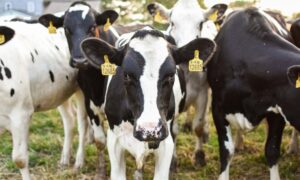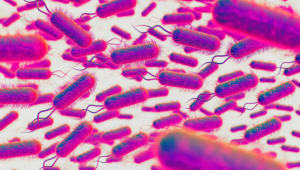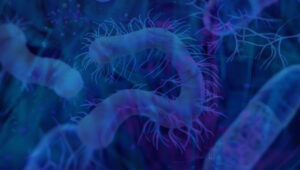How Bialtec’s Technologies are reinventing the Animal Protein Systems in the Greater Rotterdam-The Hague area
The protein transition is bigger than one solution. To help feed humanity sustainably, it is important to create innovative solutions across the food industry in order to achieve planet wide goals. The greater Rotterdam-The Hague area is a hub for the protein transition due to the academic and industrial innovation, and the cluster of traditional food and animal feed companies. Part of the protein transition is making meat more sustainable and one company tackling this issue is Bialtec. They are a Colombian founded company who moved to the province of Zuid-Holland to work with traditional animal feed producers in the greater Rotterdam-The Hague area to create more sustainable animal proteins.
Towards More Sustainable Animal Protein
Mauricio Agudelo, Bialtec’s CEO, founded the company together with Darío Rueda in 2017 as two chemical engineers who had spent years working in biotech companies and startups. They were driven by their concern for the current status quo and were “passionate about the transition to design a more efficient, equitable, and profitable animal protein system,” as Mauricio stated. The animal protein market has a multitude of side effects in humans, animals, and the environment, and with the help of microencapsulated microbiomes, Bialtec is determined to bring a more sustainable solution to the market.
A Bright Future with Microbiomes
From their Dutch Headquarters at Planet B.io in Delft, Bialtec is designing and reconfiguring “intestinal microbiomes towards more efficient and healthier ones,” Mauricio explained. Bialtec refers to this as precision microencapsulated microbiomes, by which reconfigured microbiomes are designed in their lab and then transferred into animals. This then enables animals to more efficiently breakdown nutrients, and it therefore reduces the amounts of feed needed. They use the KPI of feed conversion ratio to measure the efficiency of animal protein production. Improving the feed conversion ratio has a direct impact on the reduction of greenhouse gases as the amount of feed needed to produce one kilogram of meat is decreased. AI is used to optimise the microbiome models before they are encapsulated into feed, which is then eaten by the animals, providing Bialtec with crucial data to help improve the next generation of microbiomes. This leads to results such as reducing the use of cereals and decreasing emissions from manure. As an intriguing sidenote, Mauricio also noted that “in the future, this technology can be applied also to humans.”

Greater Rotterdam-The Hague Area as an Animal Feed Hub
Bialtec already launched their first products, with a focus on the American market and in Europe, the current branch of their technology development is at Technology Readiness Level (TRL) Seven. Their main clients are compound animal feed manufacturers who design the diets for animals, for whom Bialtec designs a tailor made microbiome depending on the animal feed diets. Mauricio mentioned the Netherlands as a very important country for the industry, as four of the largest animal feed companies are located in the country including Nutreco, ForFarmers, De Heus Feed, and Agrifirm. For Bialtec, being in the Rotterdam-The Hague area was an important strategic decision as it is vital “to be [here] and stay in touch with these companies to continue to expand and to develop our technology,” Mauricio added. He followed by stressing how much of a business country the Netherlands is and how open it is to international companies. Because of the high English level, it has been easy to conduct operations and they have found the culture very open to different perspectives and opinions.
Rotterdam-The Hague, which includes Leiden and Delft, has a strong presence and network in bioprocessing and biotechnology, which is a big advantage when looking to scale up businesses like Bialtec. They are looking to attract talent from TU Delft and other nearby universities as they are currently searching for technical staff with knowledge in fermentation, microencapsulation, data science, bioinformatics, and microbiology. Lina also remarked that at Bialtec it is “very important to find people who are very passionate about what we’re doing with a lot of positive energy.” Bialtec is currently thirteen people and their ambitions are large as they hope to expand to ten countries by 2026 and to generate 160 permanent jobs, including 70-80 jobs in Europe as they expect half of their staff to be Dutch.
Making the Move to Delft
Mauricio explained that Bialtec chose to build their European operations from Planet B.io because they see “Planet B.io and biotech campus Delft as the best place to scale up our novel fermentation process because it’s the most important hub in biotech in Europe.”
The ecosystem around biotechnology in Delft and in the greater Rotterdam-The Hague area provides protein technologies a unique base of operations. Mauricio also stressed how easy it is to move around the country and connect with different hubs and networks and that “the Netherlands is a great place to open the European market and manage the expansion for Bialtec.”
The future of protein is multifaceted, with solutions across the industry that can transform the way that the world is fed. Mauricio believes “the protein of the future is the more sustainable, equitable, and profitable one and so we understand that all of the sources can be in that space.”
Their tools and technology are helping to improve animal protein production as there are wide gaps that they can close with their technologies.
Bialtec supports the protein transition in all areas from insect proteins to microalgae, but specifically with their technology they “want to offer a more sustainable animal protein to the market because either way, there are a lot of people who are not willing to change their consumption habits,” as Lina acknowledged.
The future of the protein transition is bright and with innovations from all sides of the equation, companies like Bialtec are helping to feed the future of humanity.
Source: https://www.investinrotterdamthehaguearea.org/news/portfolio-item/making-animal-feed-more-efficient-healthier-and-sustainable/








